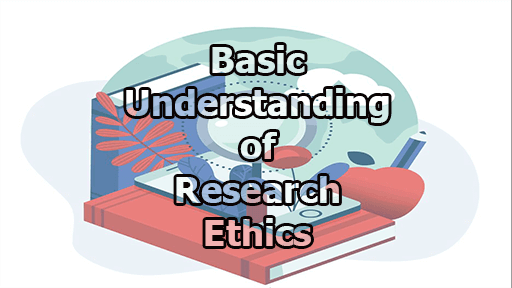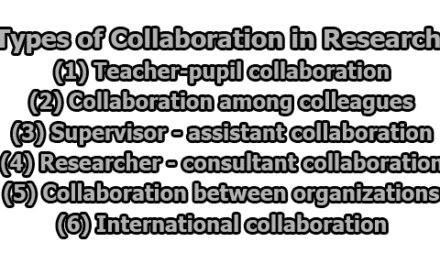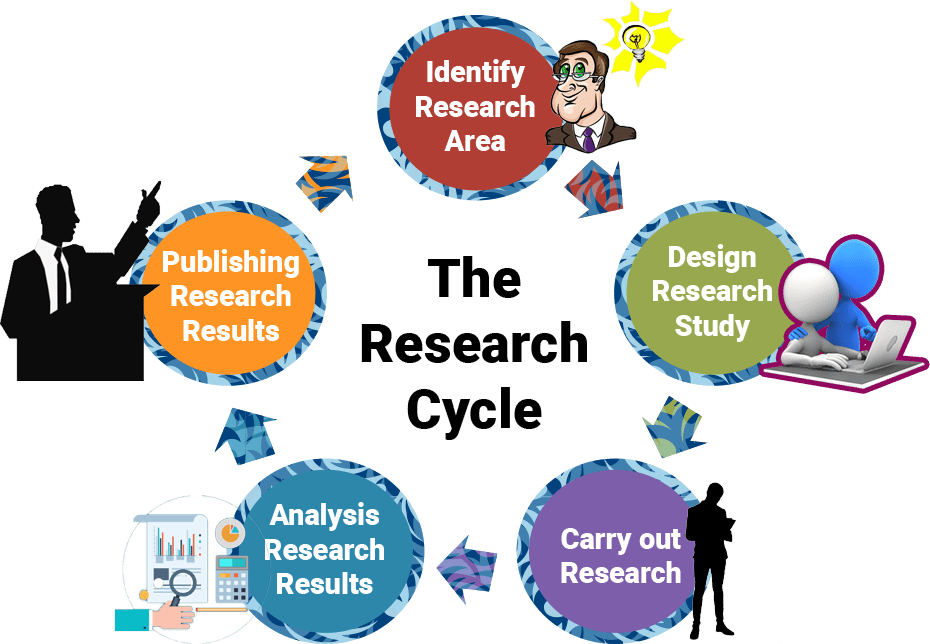Basic Understanding of Research Ethics:
Research ethics might not always be the most glamorous aspect of academic work, but they form the foundation of responsible and credible research. Whether you’re crafting a dissertation, thesis, or journal article, ethical standards must guide every phase of your study. Without them, not only could your work be invalidated, but you might also risk causing harm to participants or breaching institutional and legal standards. In the rest of this article, we will explore a basic understanding of research ethics, including its importance and principles.
What Are Research Ethics?
Research ethics refer to the set of principles and guidelines that govern how scientific and scholarly research should be conducted to ensure it is performed with integrity, responsibility, and respect for all involved. These principles are designed to protect the dignity, rights, and welfare of research participants, ensure the credibility of research findings, and uphold public trust in academic and scientific institutions (Resnik, 2020).
At their most fundamental level, research ethics serve two primary purposes:
- To protect participants — whether human or animal—from harm, coercion, exploitation, or deception.
- To uphold the integrity and quality of research by promoting honest, transparent, and methodologically sound practices.
Ethical Research vs. Unethical Research: Ethical research involves obtaining informed consent from participants, maintaining confidentiality, avoiding fabrication or falsification of data, and ensuring that the research serves a legitimate scientific or societal purpose. In contrast, unethical research might involve coercing participants, exposing them to undue risk, plagiarizing others’ work, or manipulating data to fit a hypothesis.
Historical examples of unethical research—such as the Tuskegee Syphilis Study in the United States, where African American men with syphilis were deliberately left untreated—have highlighted the devastating consequences of ignoring ethical standards. Such cases led to the establishment of ethical codes and review processes like Institutional Review Boards (IRBs) or Ethics Review Boards (ERBs) to prevent recurrence (National Commission for the Protection of Human Subjects of Biomedical and Behavioral Research, 1979).
The Scope of Research Ethics: Research ethics applies across all disciplines—be it medicine, psychology, sociology, education, or engineering. While the specific ethical considerations may differ by field, the underlying principles remain largely the same. For instance:
- In medical research, ethics might focus on informed consent, risk minimization, and patient safety.
- In educational or social research, issues of privacy, voluntary participation, and power imbalances (e.g., between teachers and students) are more prominent.
- In engineering or environmental studies, ethics may involve transparency, sustainability, and the potential impact on communities or ecosystems.
Guiding Ethical Frameworks: Several globally recognized documents and declarations serve as foundational texts for research ethics. These include:
- The Belmont Report (1979): Emphasizes the three core principles—respect for persons, beneficence, and justice (National Commission, 1979).
- The Declaration of Helsinki (WMA, 2024): A cornerstone document for medical research ethics, emphasizing human rights and ethical medical practice.
- The Singapore Statement on Research Integrity (2010): Stresses honesty, accountability, professional courtesy, and good stewardship in research across disciplines.
Each institution or country typically adapts these global standards into their own ethics policies, often enforced through ethics review committees or institutional boards. Researchers must ensure that their proposals align with these institutional standards before beginning their projects.
Key Components of Research Ethics: Some essential aspects that research ethics encompass include:
- Informed Consent: Participants must voluntarily agree to be part of a study after being fully informed about the study’s nature, risks, benefits, and their rights.
- Confidentiality and Privacy: Sensitive information about participants must be protected, stored securely, and only used for the purposes of the research.
- Minimizing Harm: Researchers must identify potential physical, psychological, social, or economic risks and take steps to avoid or mitigate them.
- Fair Subject Selection: Participants should be selected based on scientific objectives, not convenience or vulnerability.
- Integrity of the Researcher: Researchers are expected to avoid misconduct such as data fabrication, falsification, plagiarism, or undisclosed conflicts of interest.
- Transparency and Accountability: The methodology, funding sources, and any potential biases should be openly disclosed to allow scrutiny and replication.
Ethics in the Digital Age: With the growth of digital data, online surveys, and AI tools, new ethical challenges have emerged. For example:
- How do you obtain informed consent in online studies?
- How do you protect data from breaches?
- How do algorithms affect fairness in participant selection?
These questions highlight the evolving nature of research ethics in the modern era, requiring continuous updates to ethical guidelines and greater digital literacy among researchers.
Why Are Research Ethics Important?
Research ethics are not just formalities or bureaucratic hurdles to overcome—they are the foundation of responsible, credible, and socially valuable research. They help ensure that research is conducted in a manner that is honest, respectful, safe, and beneficial, both for the participants involved and for society at large. The importance of research ethics is multi-dimensional, encompassing legal, moral, professional, and scientific considerations.
1. Protection of Participants’ Rights and Welfare: The foremost reason research ethics are vital is to protect the dignity, rights, and well-being of participants. Many research studies, particularly in the social sciences, medical sciences, and education, involve human subjects who may be exposed to physical, psychological, emotional, or social risks. Without ethical safeguards, these individuals could be harmed, exploited, or misled.
For example, the ethical principle of informed consent ensures that participants understand the nature of the research, any potential risks, and their right to withdraw at any time (Beauchamp & Childress, 2019). Similarly, confidentiality and data protection measures prevent sensitive personal information from being disclosed without consent.
Historical violations such as the Nazi medical experiments during World War II and the Tuskegee Syphilis Study in the U.S. (1932–1972) highlight the catastrophic consequences of ignoring ethical obligations. These cases led to the development of stringent ethical frameworks like the Nuremberg Code, the Declaration of Helsinki, and the Belmont Report, which now guide ethical research globally (Shuster, 1997; National Commission, 1979).
2. Ensuring the Credibility and Integrity of Research: Ethical research practices are essential for maintaining the integrity of research findings. If data is fabricated, manipulated, or collected through biased or dishonest methods, the results become invalid and unreliable, rendering them scientifically useless and potentially dangerous if used for policy or medical decisions.
For instance, research misconduct such as plagiarism, data falsification, or undisclosed conflicts of interest not only tarnish individual reputations but also damage the credibility of academic institutions and the research community as a whole (Steneck, 2006). By adhering to ethical standards, researchers demonstrate honesty, transparency, and accountability, which are critical for public and peer trust.
3. Gaining Ethical Approval for Research Projects: Virtually all academic institutions and funding bodies require researchers to obtain ethical clearance from an Ethics Review Board (ERB) or Institutional Review Board (IRB) before beginning data collection. These boards assess whether a proposed study meets ethical standards related to risk, consent, confidentiality, and more.
Without approval, a project may be denied funding, disallowed for publication, or barred from proceeding altogether. Ethical compliance is, therefore, a practical necessity for getting one’s research off the ground and accepted within the academic community (Israel & Hay, 2006).
4. Building Public Trust in Research and Researchers: The public’s willingness to support and participate in research relies heavily on trust. If people believe that researchers are exploitative, dishonest, or careless, they may be unwilling to engage with future studies, donate to scientific causes, or accept research-based recommendations.
Ethical research demonstrates a commitment to justice, respect, and transparency, fostering a positive public perception of research. This trust is especially critical in sensitive areas such as vaccine development, genetic testing, and artificial intelligence, where public concern about misuse or privacy is high (Resnik, 2020).
5. Promoting Fair and Responsible Collaboration: In today’s research environment, collaboration is often multidisciplinary, international, and institutionally diverse. Ethical guidelines help ensure that such collaborations are fair, respectful, and legally sound. This includes clearly defined authorship, appropriate sharing of data and credit, and respect for intellectual property.
For example, the Singapore Statement on Research Integrity (2010) emphasizes responsibilities such as reporting findings truthfully, giving proper acknowledgment to contributors, and disclosing any conflicts of interest. These practices prevent misunderstandings, disputes, and unethical behavior among collaborators.
6. Reducing Legal and Institutional Risks: Failure to adhere to ethical standards can lead to serious legal and institutional consequences. Breaches of data protection laws (such as GDPR in Europe) can result in lawsuits, fines, and institutional penalties. Misconduct allegations can lead to retraction of publications, suspension of grants, or even job termination.
Ethical compliance not only protects participants but also safeguards the researcher, institution, and stakeholders from legal liabilities and reputational harm (Wager & Kleinert, 2014).
7. Advancing Socially Responsible Knowledge: Finally, ethical research contributes to the advancement of knowledge that benefits society. It ensures that studies are designed not just to answer theoretical questions but also to address real-world challenges in education, healthcare, economics, and social justice.
By ensuring that research is conducted ethically, researchers honor their social responsibility to contribute positively to humanity and to use their work to inform policy, improve lives, and solve pressing problems.
In sum, research ethics are the backbone of responsible research practice. They:
- Protect participants from harm
- Ensure the credibility and integrity of findings
- Enable ethical approval
- Build public trust
- Promote fair collaboration
- Avoid legal issues
- Support socially impactful research
Without ethics, research loses its legitimacy, value, and capacity to drive meaningful change. Therefore, ethical compliance is not only a requirement—it is a responsibility.
Core Ethical Principles in Research:
Research ethics are grounded in a set of core principles that serve as a moral and practical framework for conducting responsible and credible studies. While the application of these principles may vary depending on context, discipline, and cultural setting, they are universally acknowledged as essential to safeguarding research participants and ensuring the trustworthiness of scientific work. Below is a detailed discussion of the four core ethical principles in research: Respect for persons, Beneficence, Objectivity, and Integrity.
1. Respect for Persons: The principle of Respect for Persons emphasizes the inherent dignity, autonomy, and rights of individuals who participate in research. It requires that participants be treated as autonomous agents capable of making informed decisions about their involvement in a study.
Key Aspects:
- Informed Consent: Researchers must obtain voluntary, informed consent from all participants. This involves clearly explaining the study’s purpose, procedures, potential risks, and benefits in language that is understandable to the participant. For individuals with limited autonomy (e.g., children, elderly with cognitive decline), additional protections are required, such as assent and consent from guardians (Beauchamp & Childress, 2019).
- Right to Withdraw: Participants must be allowed to withdraw from the study at any time without facing negative consequences or coercion. This reinforces their autonomy and freedom of choice.
- Confidentiality and Privacy: Researchers are ethically obliged to maintain the privacy and confidentiality of participant data. Identifiable information should be anonymized or pseudonymized whenever possible. Secure data storage systems and proper data disposal methods must also be in place to protect sensitive information (Israel & Hay, 2006).
Real-World Example: In studies involving survivors of trauma, such as war or abuse, researchers must handle interactions with sensitivity, ensuring the psychological safety and autonomy of participants. Missteps here can cause emotional harm and violate ethical norms.
2. Beneficence: Beneficence refers to the obligation to maximize potential benefits and minimize possible harm to research participants and society. It aligns with the moral duty to “do good” and prevent or mitigate risks.
Key Aspects:
- Risk Assessment and Minimization: Researchers must carefully assess potential risks—physical, psychological, social, legal, or economic—and take active steps to minimize them. If a study poses more than minimal risk, enhanced ethical justification and oversight are required.
- Maximizing Benefits: Benefits may include contributing to scientific knowledge, improving policies, or providing direct benefits to participants. Research should aim for socially valuable outcomes and ensure that benefits are not limited to a privileged few.
- Protection of Vulnerable Populations: Vulnerable groups—such as minors, prisoners, individuals with disabilities, or economically disadvantaged persons—require additional safeguards to ensure that they are not exploited or exposed to undue risk (CIOMS, 2016).
Example: In clinical trials, participants may be exposed to untested treatments. Ethical review boards ensure that the potential benefits of such research outweigh the risks, and that participants are fully aware of these conditions before giving consent.
3. Objectivity: Objectivity in research refers to the commitment to neutrality, impartiality, and fairness in all aspects of a study—from its design to data analysis and interpretation.
Key Aspects:
- Unbiased Methodology: Research design and sampling strategies should align with the study’s goals, rather than supporting a preconceived hypothesis. Bias in sampling, data collection, or statistical analysis undermines the validity of results.
- Transparent Reporting: Researchers should report both positive and negative findings honestly, without manipulating outcomes to fit expected results. Selective reporting or p-hacking is a violation of objectivity.
- Avoidance of Conflicts of Interest: Researchers must disclose any personal, financial, or professional interests that could compromise their impartiality. For instance, receiving funding from a corporation whose product is being studied must be openly reported (Steneck, 2006).
Example: A pharmaceutical researcher must avoid skewing clinical trial results to favor a sponsor’s drug. Independent data monitoring committees and the publication of trial protocols help preserve objectivity.
4. Integrity: Integrity in research encompasses honesty, accountability, and transparency. It means doing what is right—even when no one is watching—and ensuring that all processes and outcomes are accurate and truthful.
Key Aspects:
- Honest Data Handling: Researchers must not fabricate, falsify, or misrepresent data. This includes avoiding plagiarism, not altering results, and acknowledging errors when discovered.
- Respect for Intellectual Property: Proper citation of others’ work is essential. Using data, ideas, or methods developed by others without permission or acknowledgment is unethical and, in many cases, illegal (Wager & Kleinert, 2014).
- Publication Ethics: Integrity also involves adhering to ethical standards in publishing. This includes avoiding duplicate publication, properly assigning authorship, and responding to peer review with honesty and professionalism.
- Responsibility to the Research Community and Public: Researchers should engage in practices that promote transparency and reproducibility. Sharing data, methods, and findings openly (within ethical boundaries) strengthens the reliability and utility of research.
Example: A researcher who finds an error in their published work has an ethical duty to issue a correction or retraction. Failing to do so undermines public trust and scholarly integrity.
It is apparent that research ethics form the foundation of responsible and credible academic inquiry. By upholding core principles such as respect for persons, beneficence, objectivity, and integrity, researchers not only protect participants but also ensure the trustworthiness and value of their work. Adhering to ethical standards is not just a procedural requirement—it is a vital commitment to doing research that is respectful, honest, and impactful.
Frequently Asked Questions (FAQs):
What is Informed Consent, and Why Is It Important?
Informed consent is a process where participants are fully informed about the research before agreeing to take part. This includes details about the study’s purpose, what it involves, any potential risks or benefits, and the participants’ rights—including the right to withdraw at any time.
The purpose of informed consent is to protect participants’ autonomy and ensure they voluntarily choose to participate, without pressure or misinformation. It also builds trust between the researcher and participants and ensures that ethical standards are being upheld.
How Should Consent Be Obtained from Non-English-Speaking Participants?
When working with participants who do not speak or read the language of the research, it is essential to provide translated versions of the consent forms and study information. It may also be necessary to use interpreters or bilingual assistants to ensure clear communication.
The goal is to ensure that all participants, regardless of language or cultural background, fully understand the research and their rights before agreeing to take part.
What About Research Involving Animals?
When animals are involved in research, ethical considerations focus on minimizing harm and ensuring humane treatment. Researchers should only use animals when no viable alternatives exist and must use the smallest number necessary to achieve reliable results.
Additionally, all animal research should be reviewed and approved by a designated ethics committee, and strict standards for care, housing, and treatment must be followed throughout the study.
What Is the Role of an Ethics Review Board (ERB) or Institutional Review Board (IRB)?
An Ethics Review Board or Institutional Review Board is a committee that reviews research proposals to ensure they meet ethical standards. Their job is to protect the rights, safety, and well-being of participants by evaluating factors such as informed consent, privacy measures, and risk levels.
Researchers must obtain approval from the ERB or IRB before starting their research. This review process also serves as a quality check, ensuring that the research is designed responsibly and ethically.
How Do I Obtain Ethical Approval for My Project?
To obtain ethical approval, researchers typically need to submit an application that includes a detailed explanation of the study, methods of participant recruitment, informed consent procedures, data collection techniques, and how privacy and confidentiality will be protected.
The ethics board may request revisions or clarifications before granting approval. Conducting research without prior approval is a serious ethical violation and can lead to academic or legal consequences.
How Can I Ensure Ethical Collaboration When Working with Colleagues?
Ethical collaboration means working with honesty, respect, and clear communication. This includes agreeing on roles, responsibilities, and authorship at the beginning of the project. Data and findings should be shared openly among team members, and conflicts of interest should be disclosed.
Mutual respect and transparency are key to maintaining trust and avoiding disputes, especially when working across different institutions or disciplines.
What Ethical Considerations Apply to My Funding Source?
Researchers must ensure that their funding sources do not influence the integrity or objectivity of their work. Any financial or institutional ties that could create a conflict of interest should be openly disclosed.
Transparency about who is funding the research helps maintain public trust and demonstrates that the findings are not biased or manipulated to serve outside interests.
What Should I Do If Ethical Concerns Arise During My Research?
If ethical issues come up during the course of the study—such as unexpected harm to participants or data breaches—it is essential to act quickly. The study may need to be paused, and the issue should be reported to the ethics board or supervisor.
Researchers should document what happened, propose solutions, and revise the study design if necessary. Taking these steps shows responsibility and helps maintain the integrity of the research.
References:
- Beauchamp, T., & Childress, J. (2019). Principles of Biomedical Ethics: Marking Its Fortieth Anniversary. The American Journal of Bioethics, 19(11), 9–12. https://doi.org/10.1080/15265161.2019.1665402
- (2016). International Ethical Guidelines for Health-related Research Involving Humans. Council for International Organizations of Medical Sciences. https://doi.org/10.56759/rgxl7405
- Israel, M., & Hay, I. (2006). Research ethics for social scientists. SAGE Publications, Ltd, https://doi.org/10.4135/9781849209779
- National Commission for the Protection of Human Subjects of Biomedical and Behavioral Research. (1979). The Belmont Report: Ethical Principles and Guidelines for the Protection of Human Subjects of Research. U.S. Department of Health & Human Services.
- Resnik, D. B. (2020). What is ethics in research & why is it important? National Institute of Environmental Health Sciences. https://www.niehs.nih.gov/research/resources/bioethics/whatis/index.cfm
- Singapore Statement on Research Integrity. (2010). World Conferences on Research Integrity. https://wcrif.org/guidance/singapore-statement
- Shuster, E. (1997). Fifty years later: The significance of the Nuremberg Code. New England Journal of Medicine, 337(20), 1436–1440. https://doi.org/10.1056/NEJM199711133372006
- Steneck, N. H. (2006). Fostering integrity in research: Definitions, current knowledge, and future directions. Science and Engineering Ethics, 12(1), 53–74. https://doi.org/10.1007/pl00022268
- Wager, E., & Kleinert, S. (2014). Responsible research publication: International standards for authors. Prilozi (Makedonska Akademija na Naukite i Umetnostite. Oddelenie za Medicinski Nauki), 35(3), 29–33.
- World Medical Association (WMA). (2024). Declaration of Helsinki: Ethical Principles for Medical Research Involving Human Subjects. https://www.wma.net/policies-post/wma-declaration-of-helsinki-ethical-principles-for-medical-research-involving-human-subjects/

Library Lecturer at Nurul Amin Degree College










